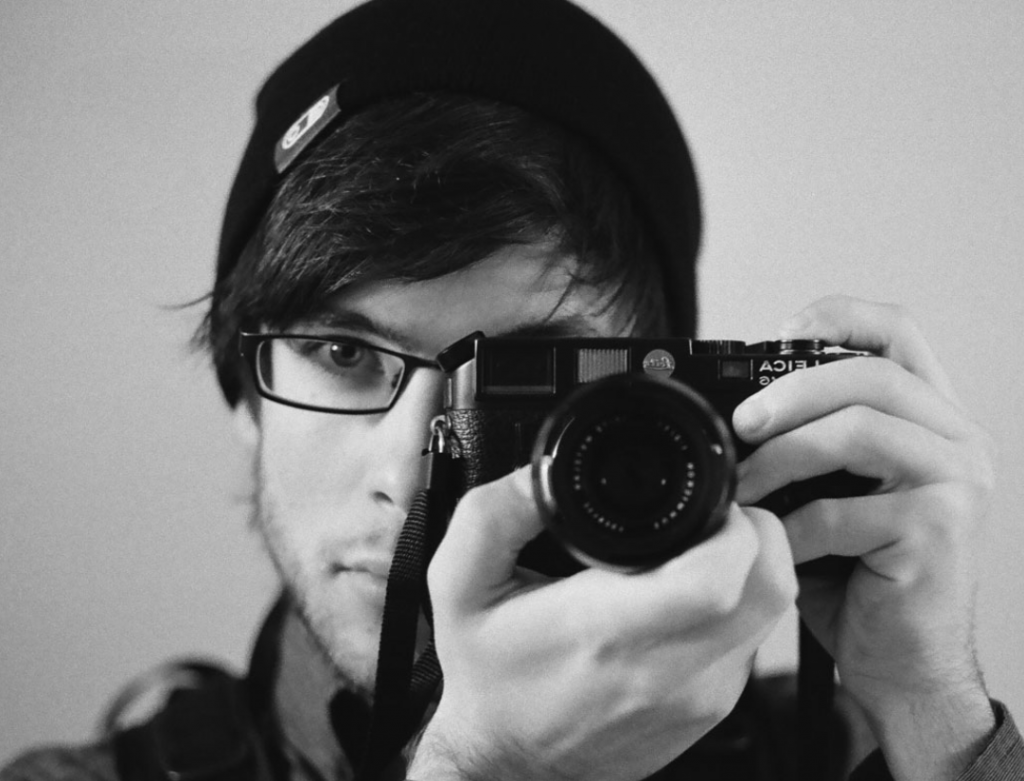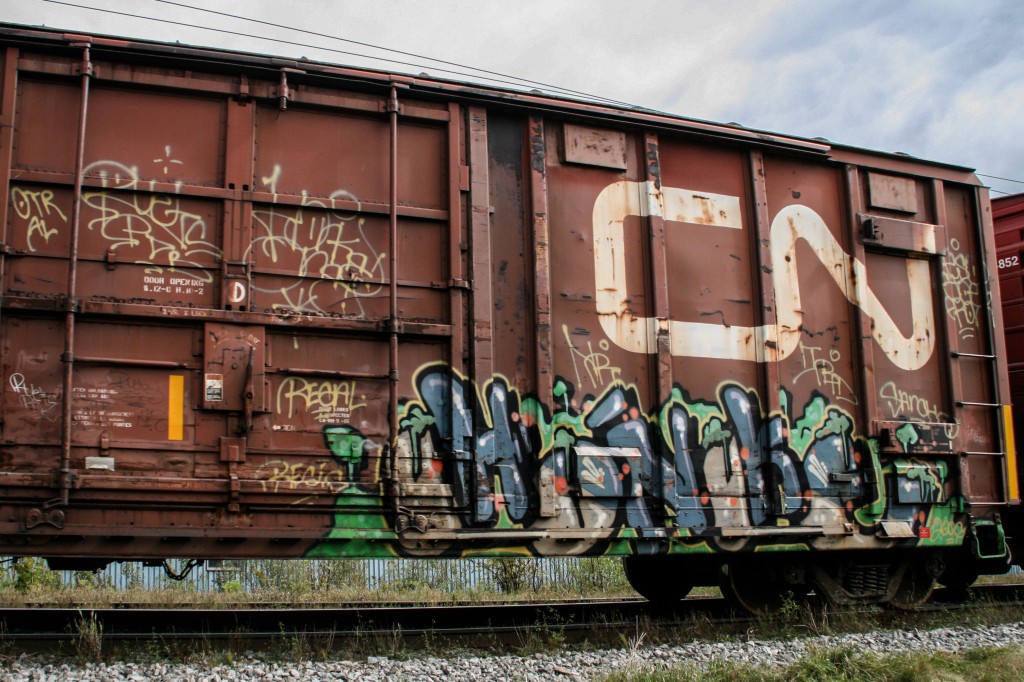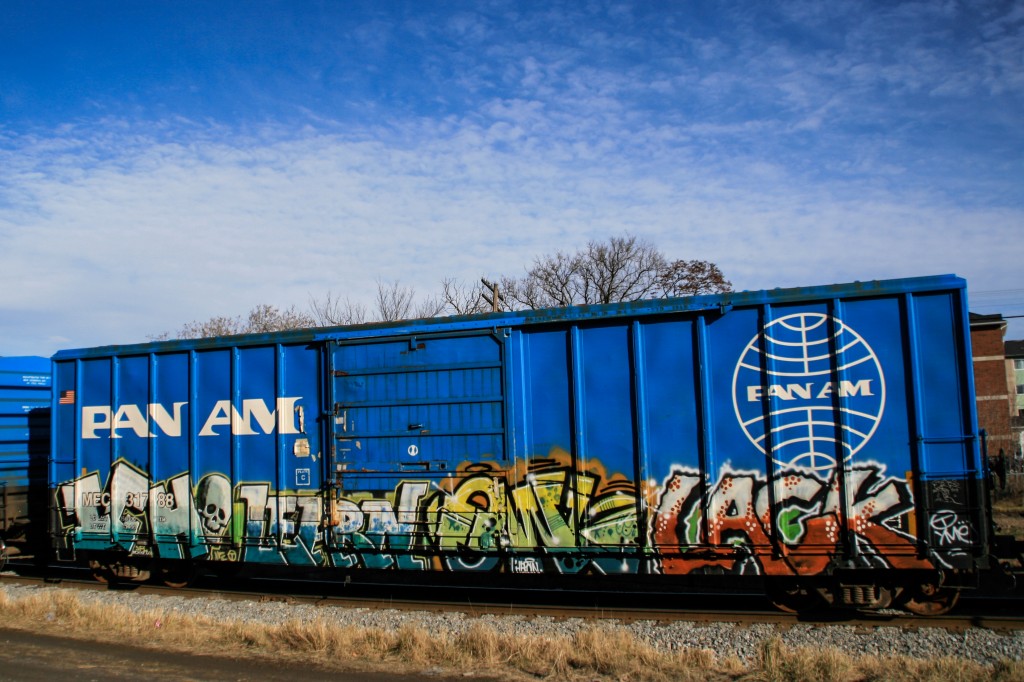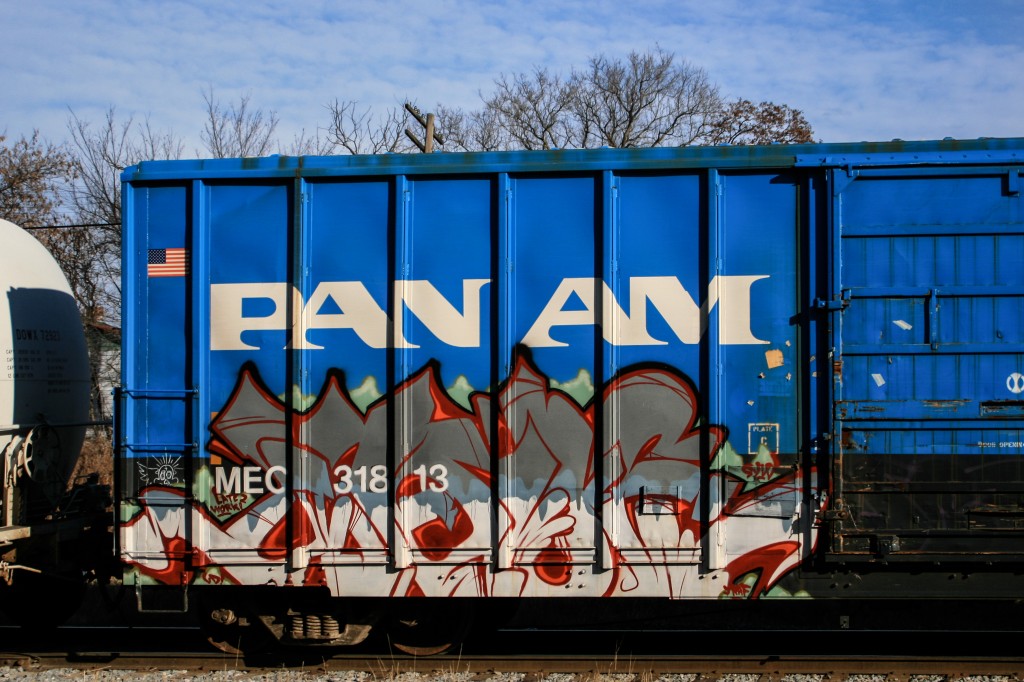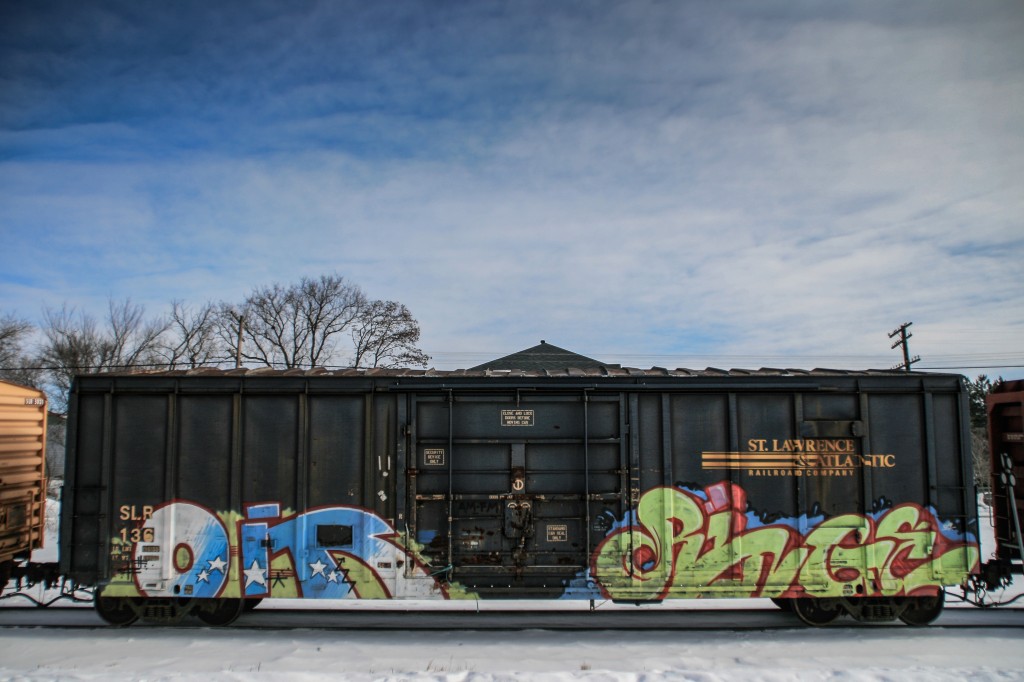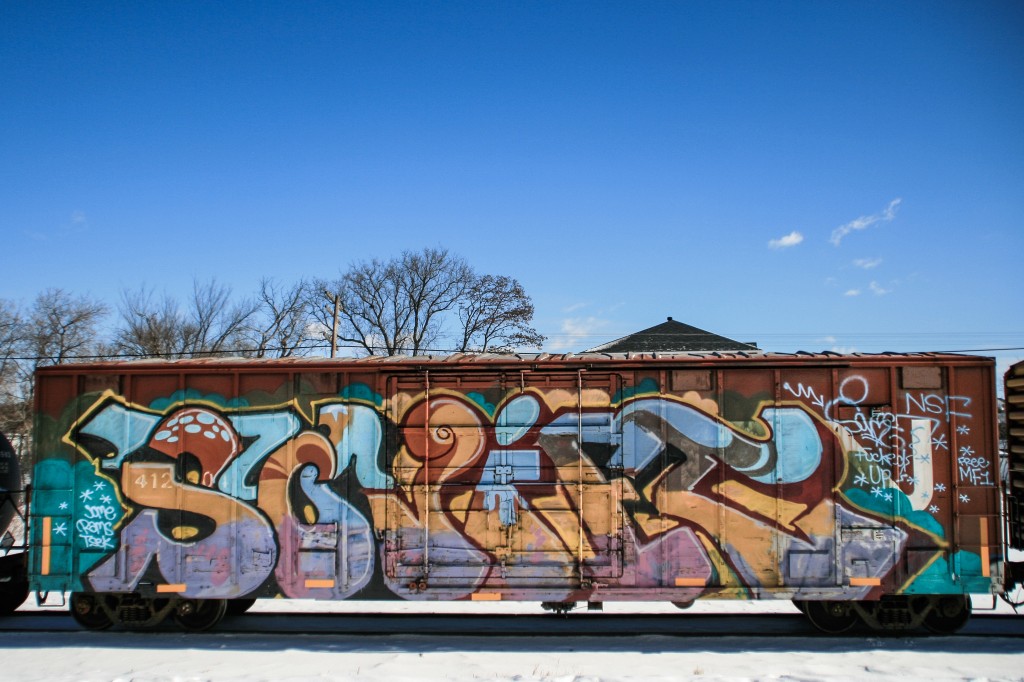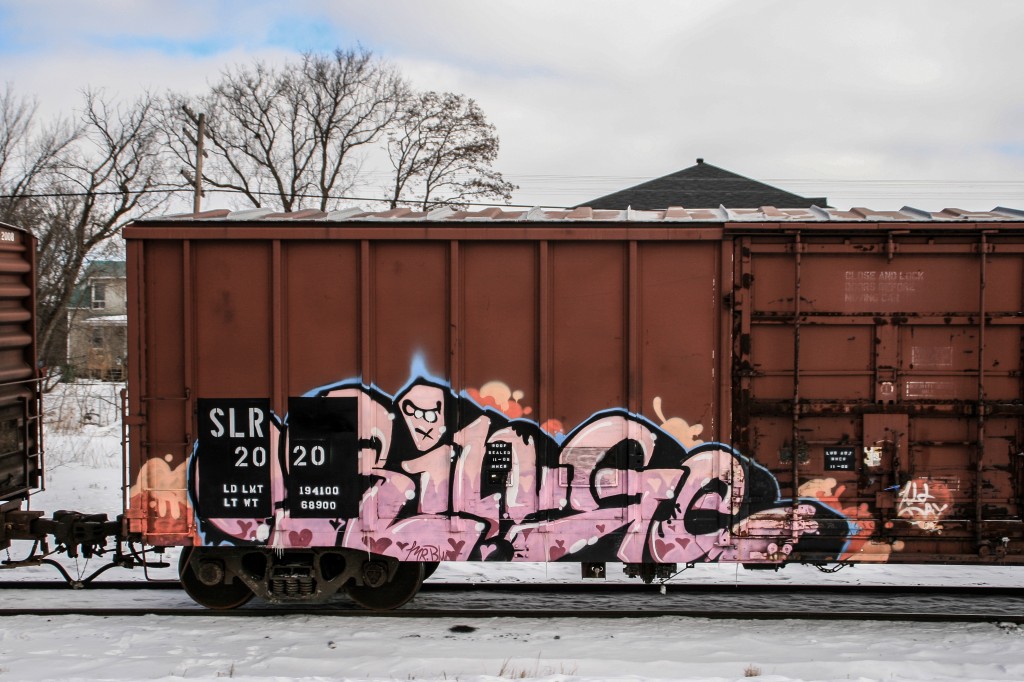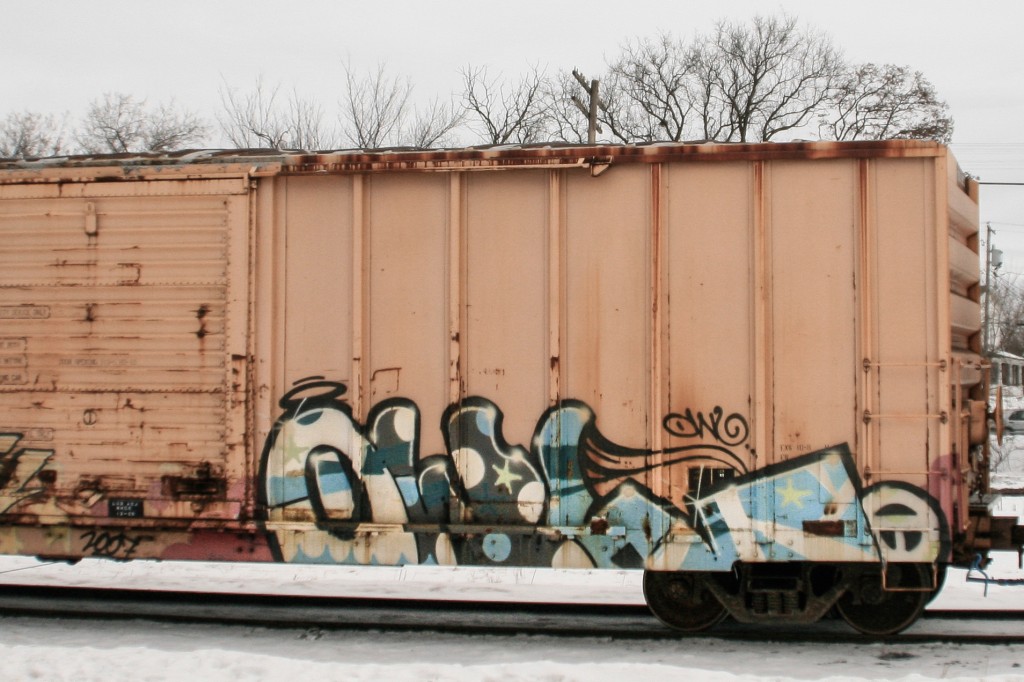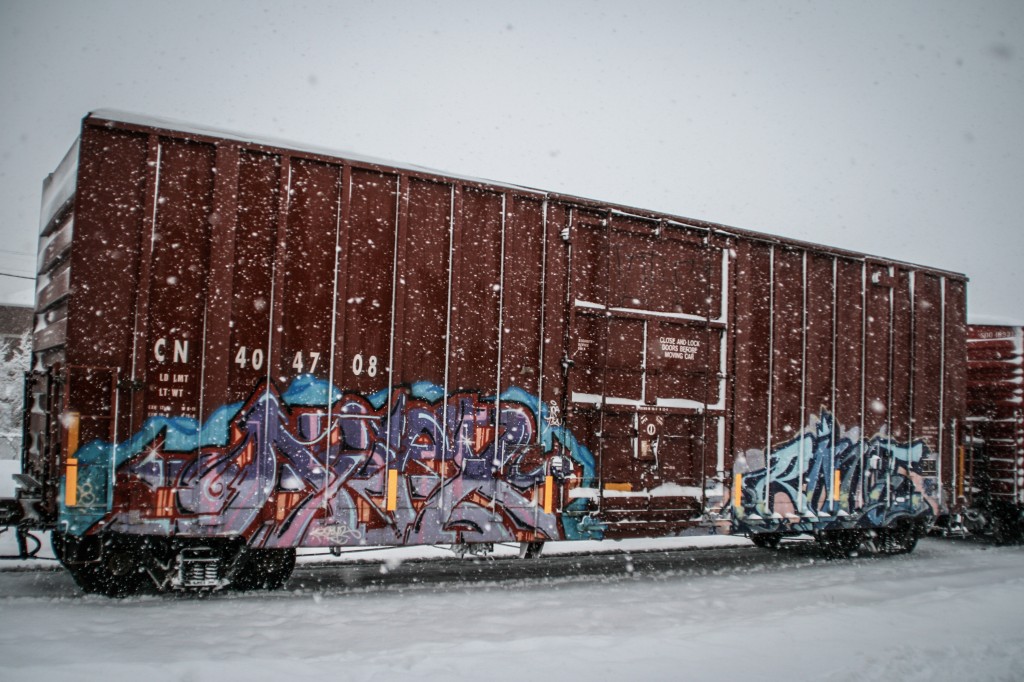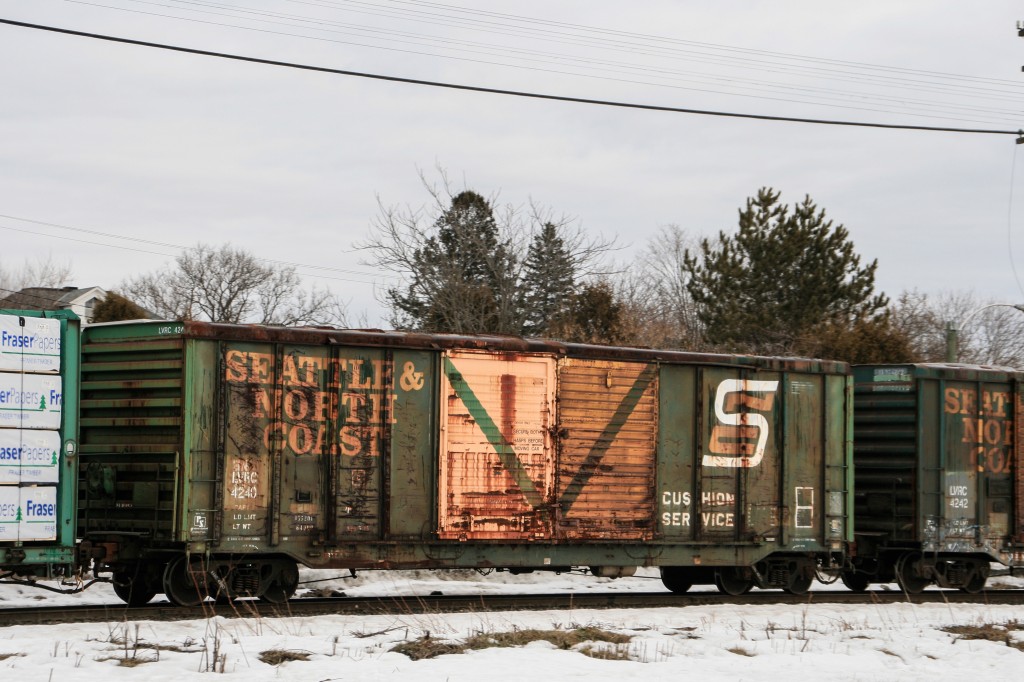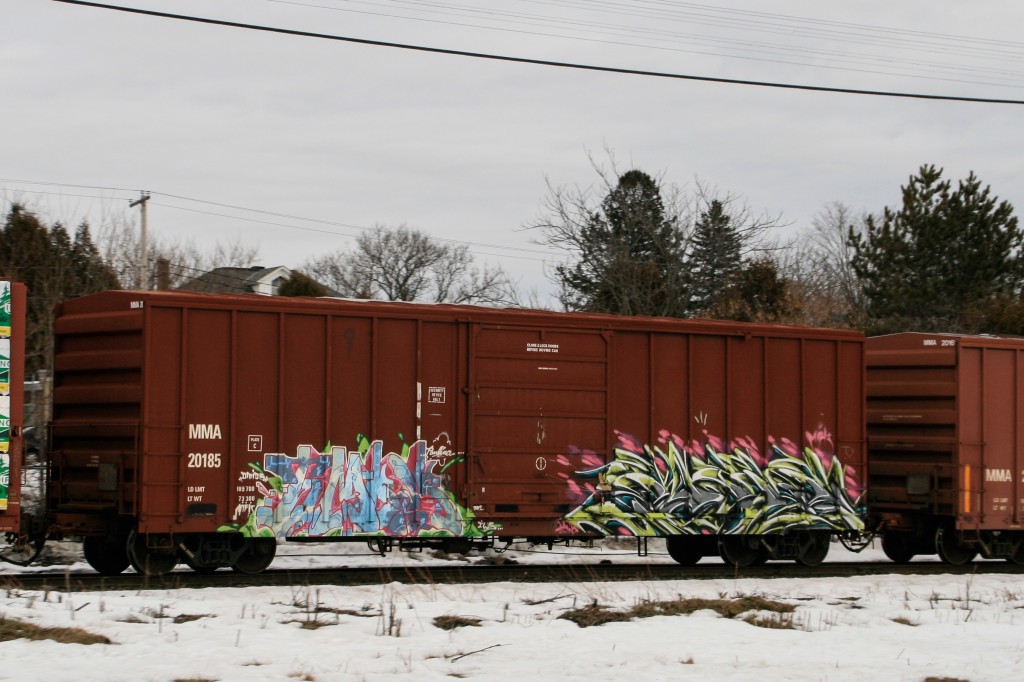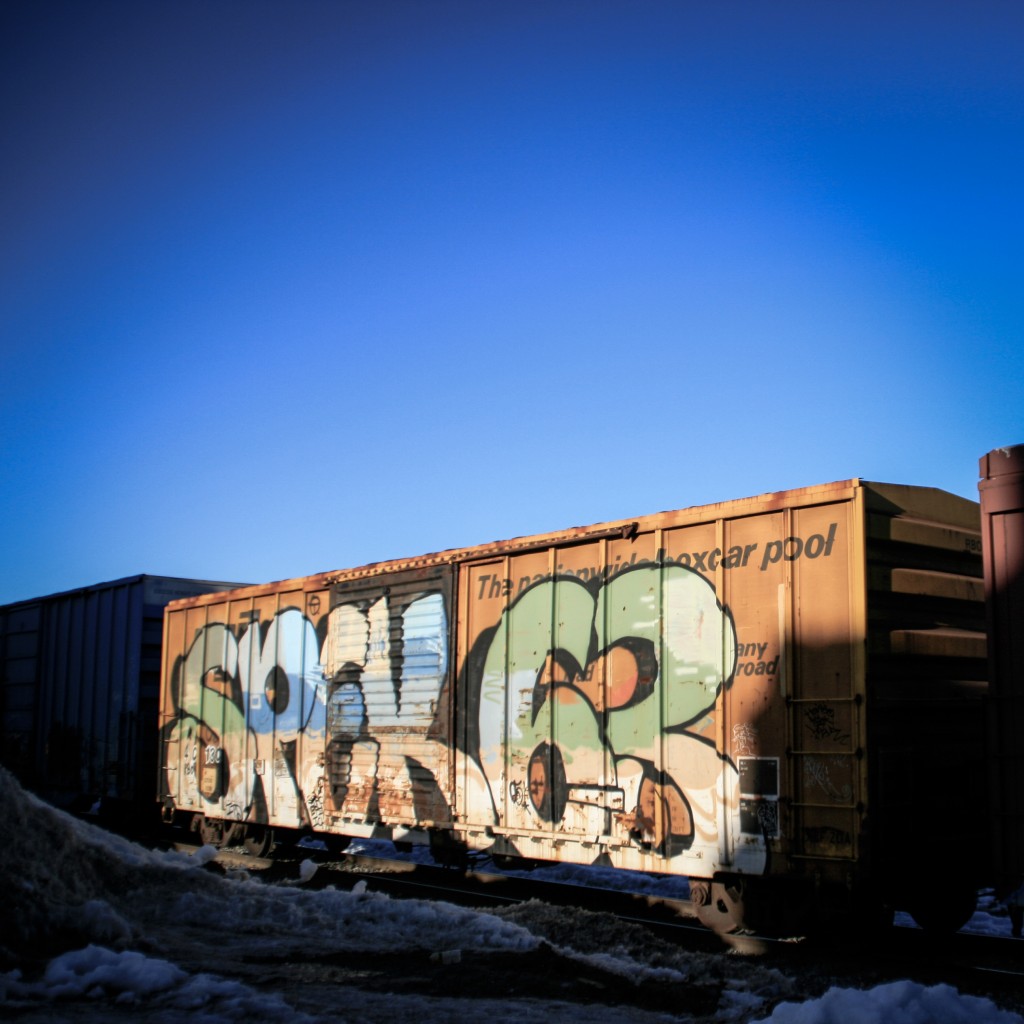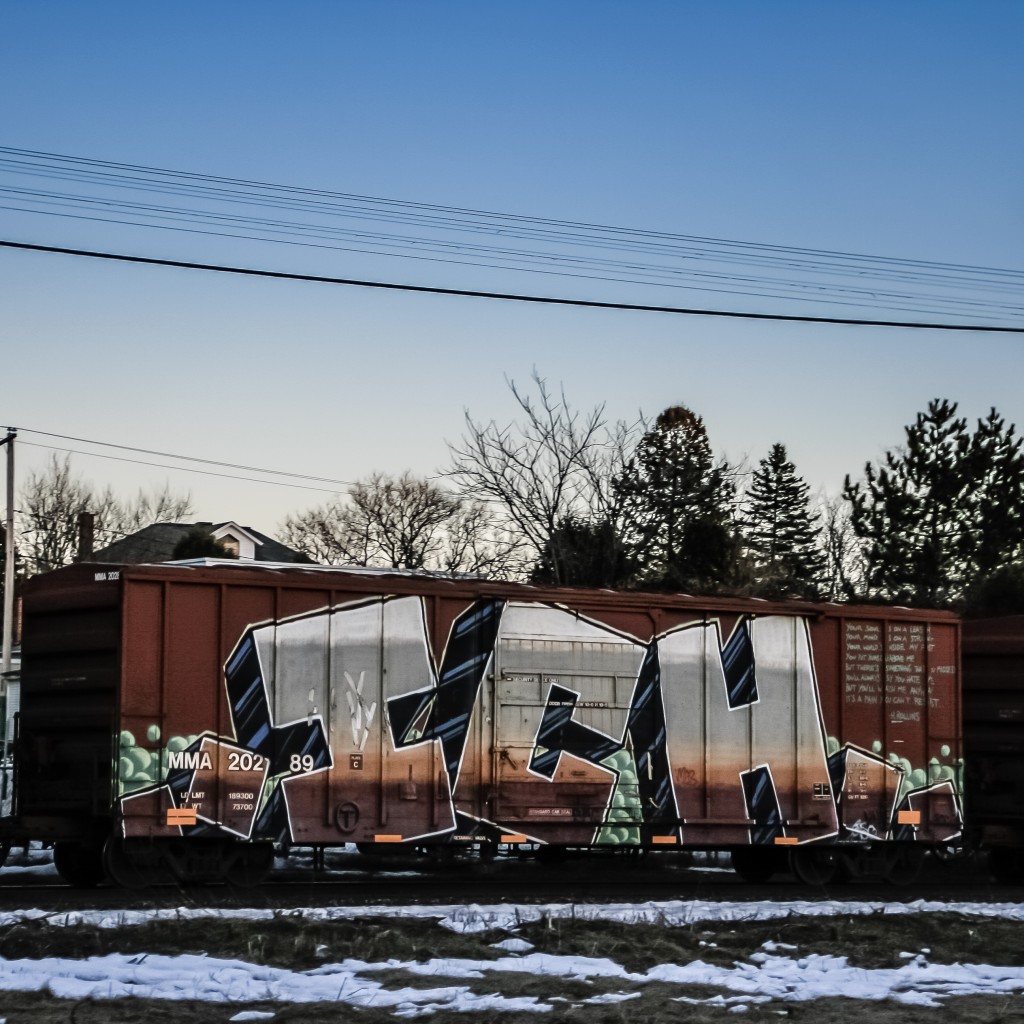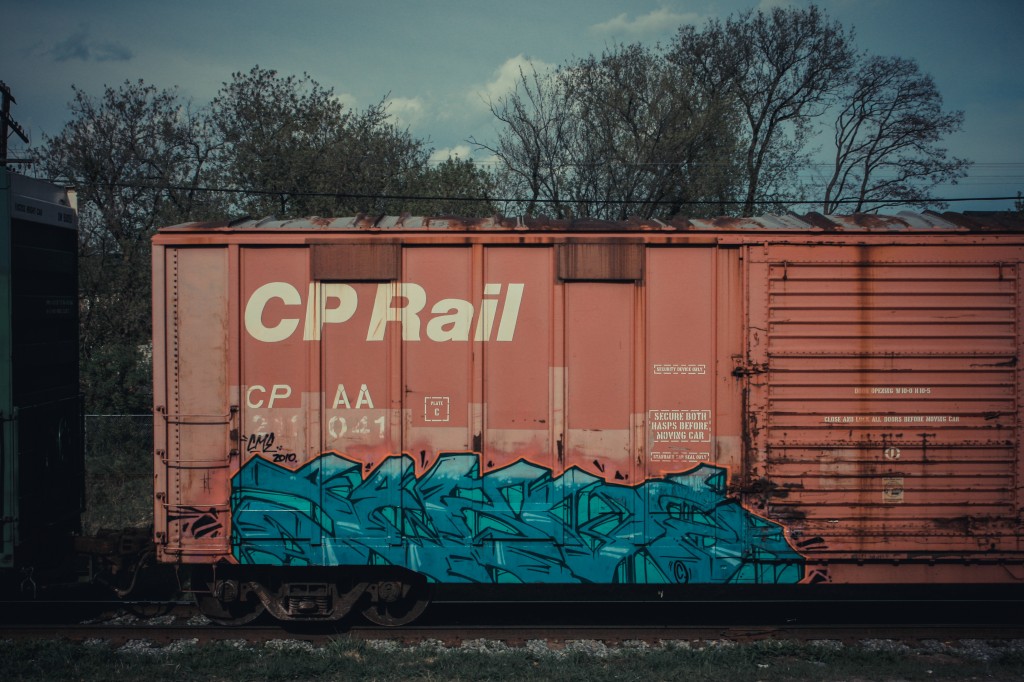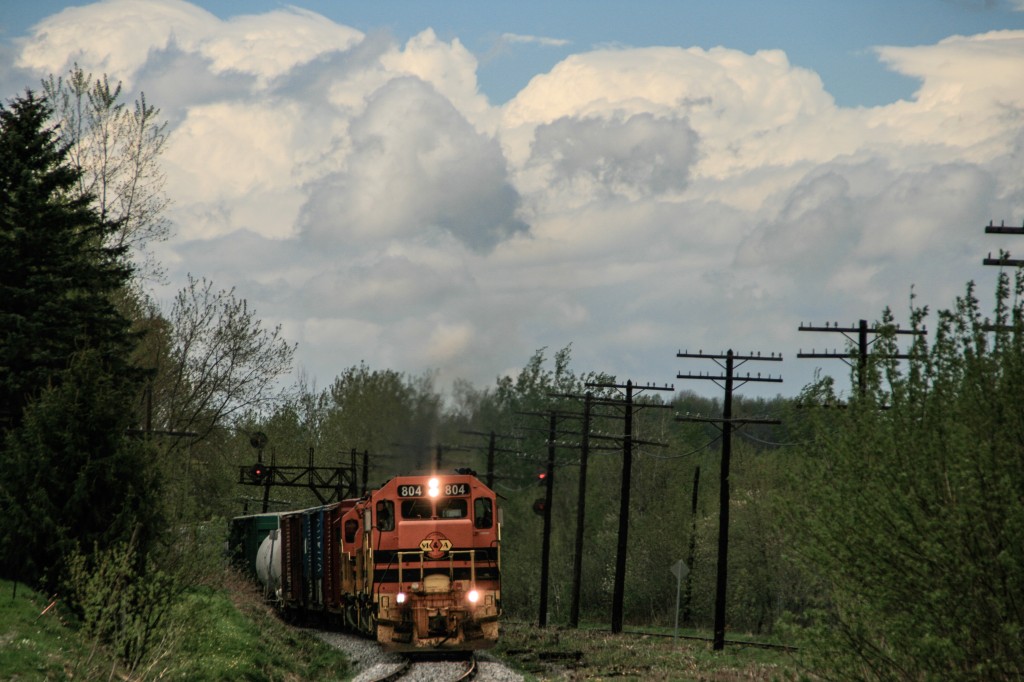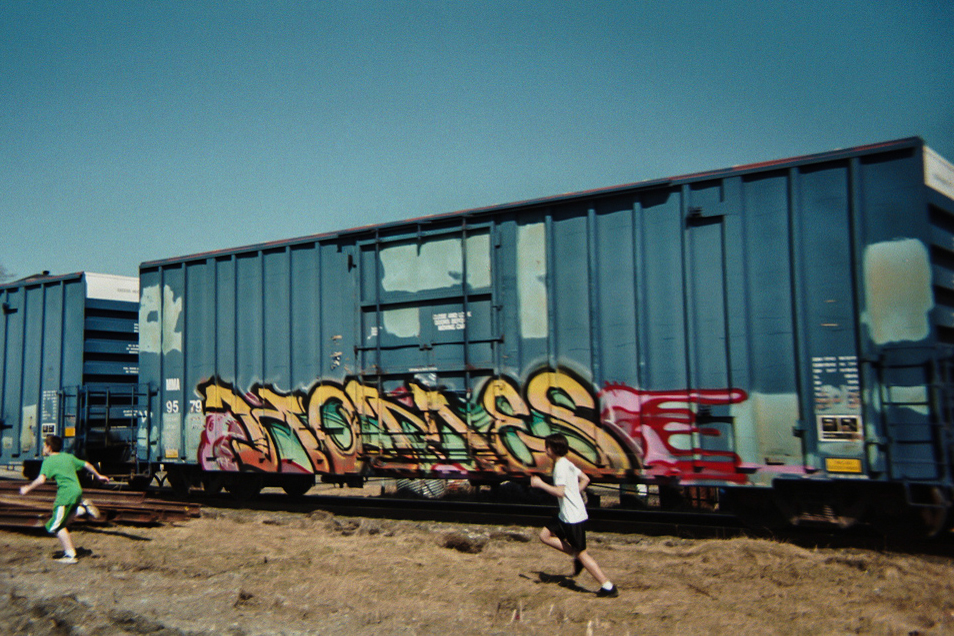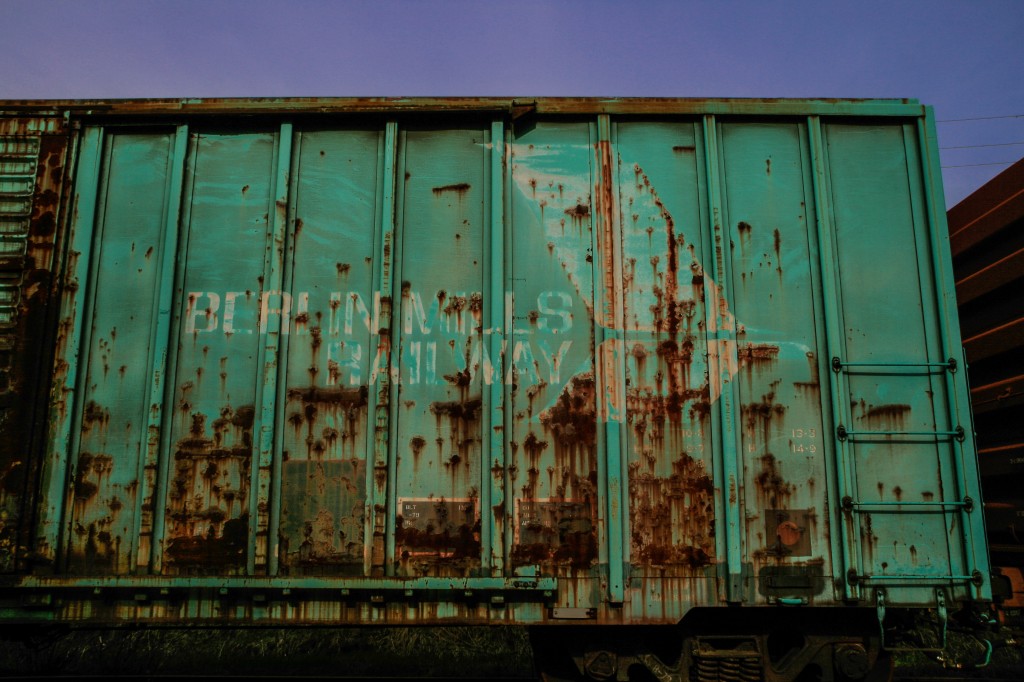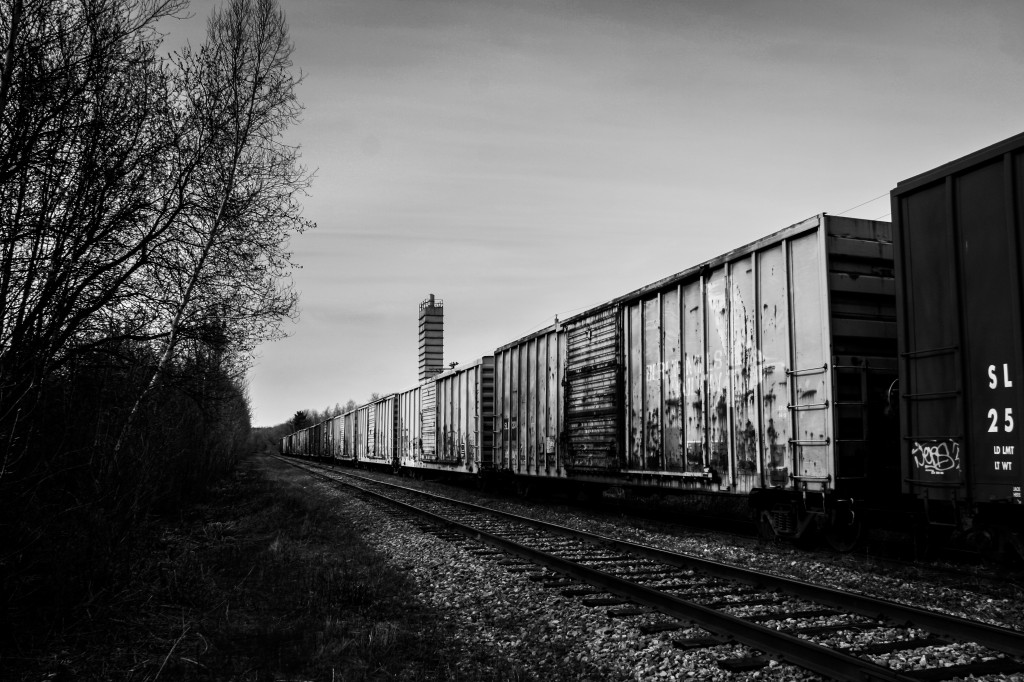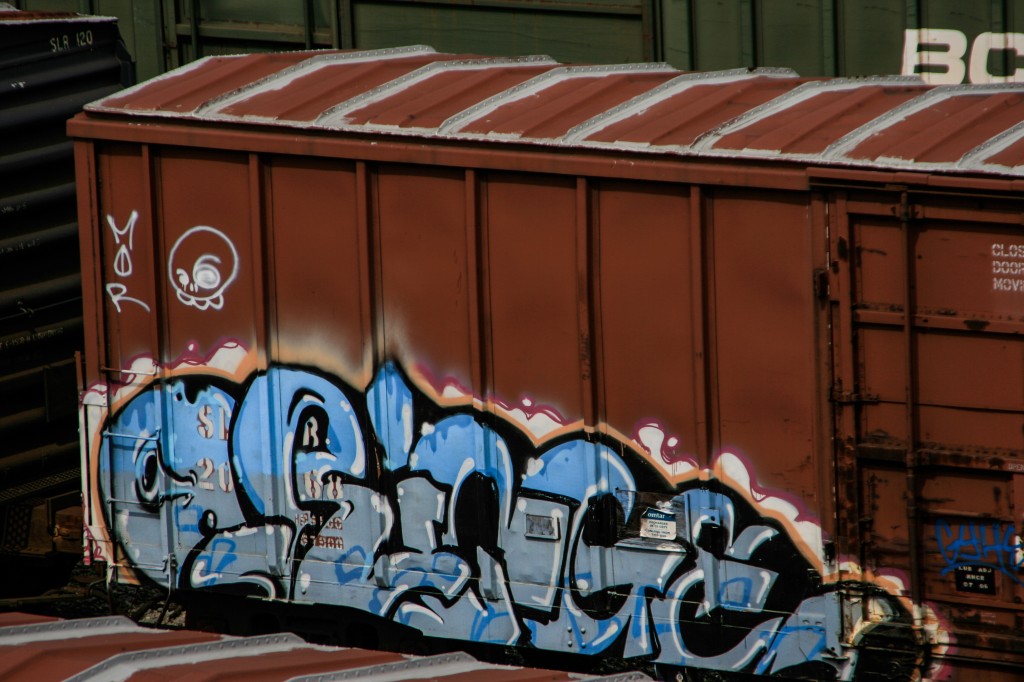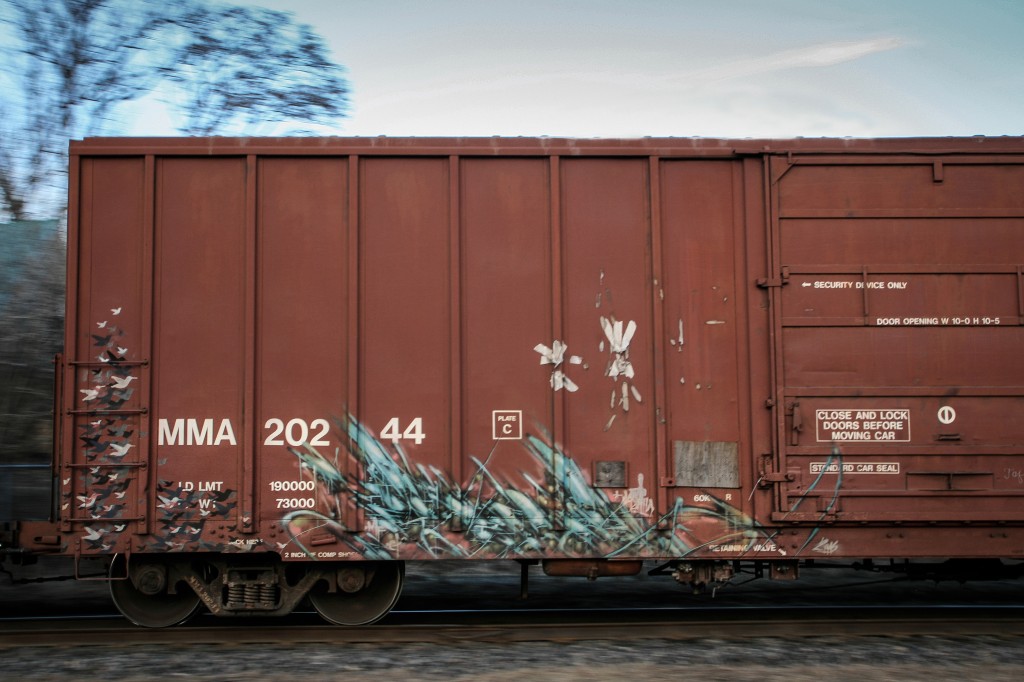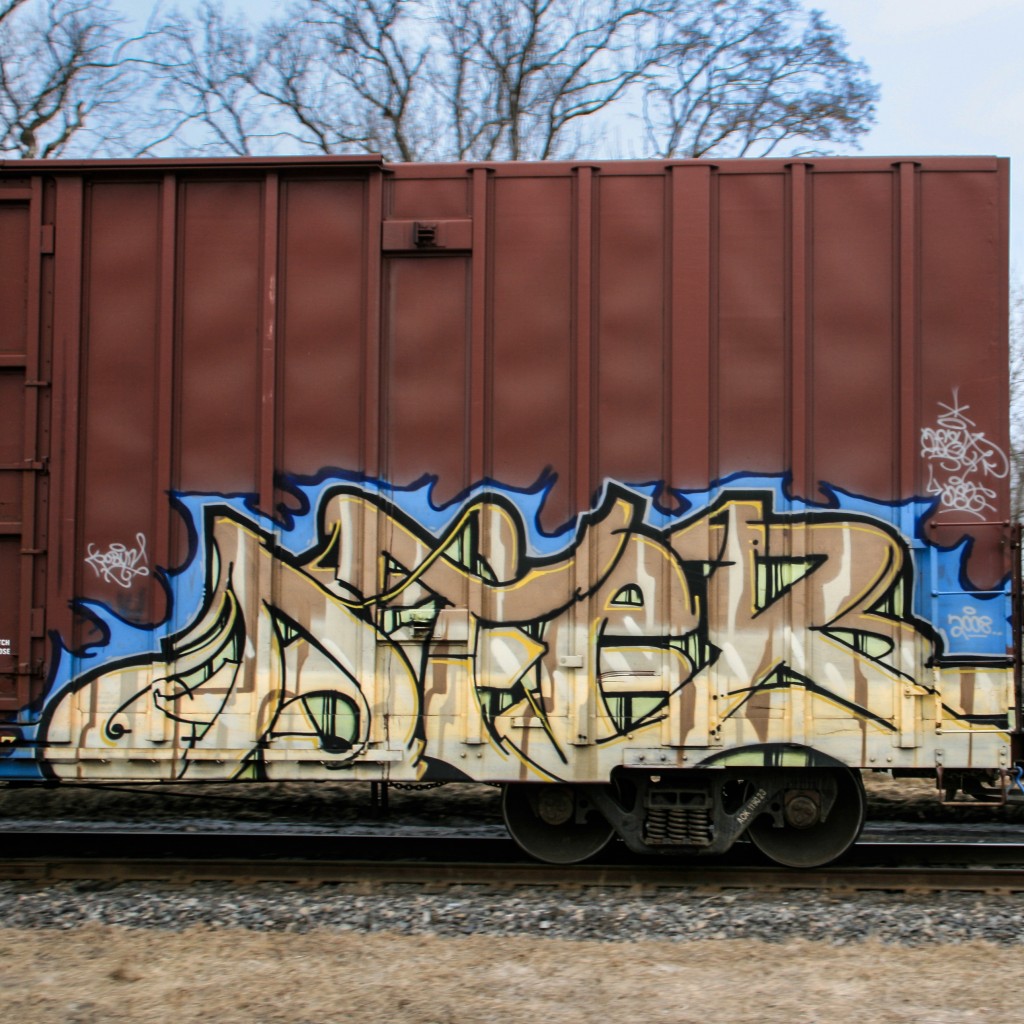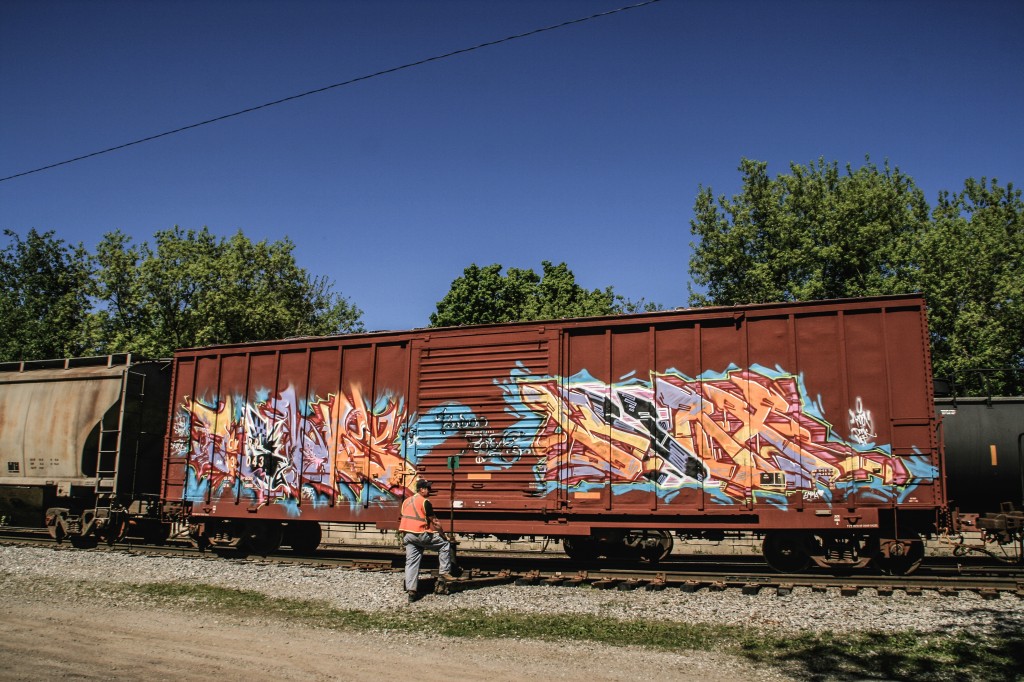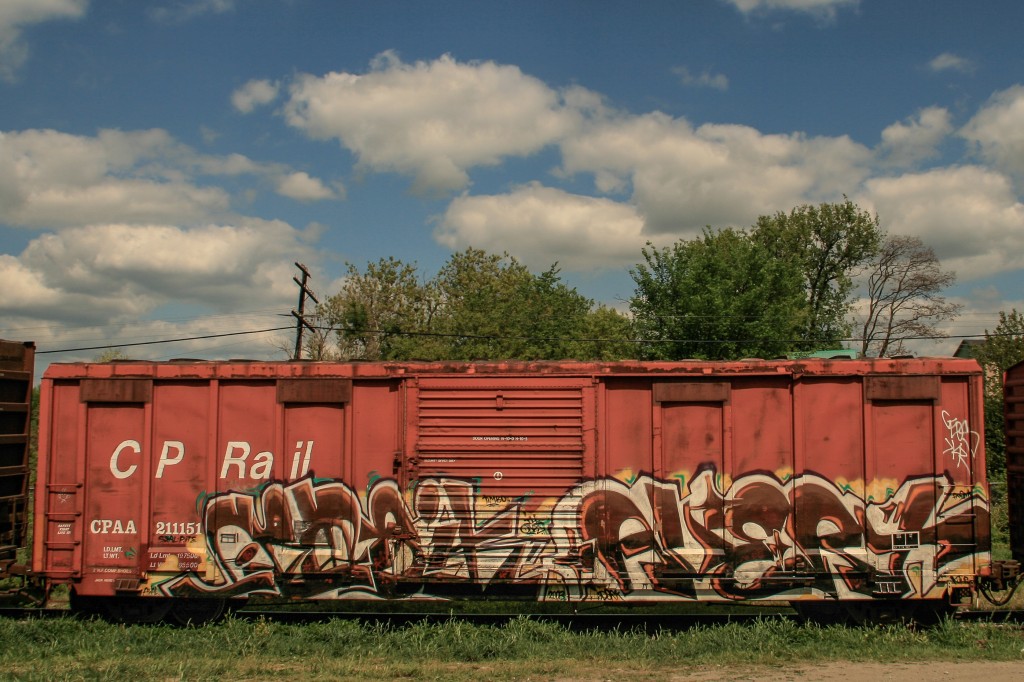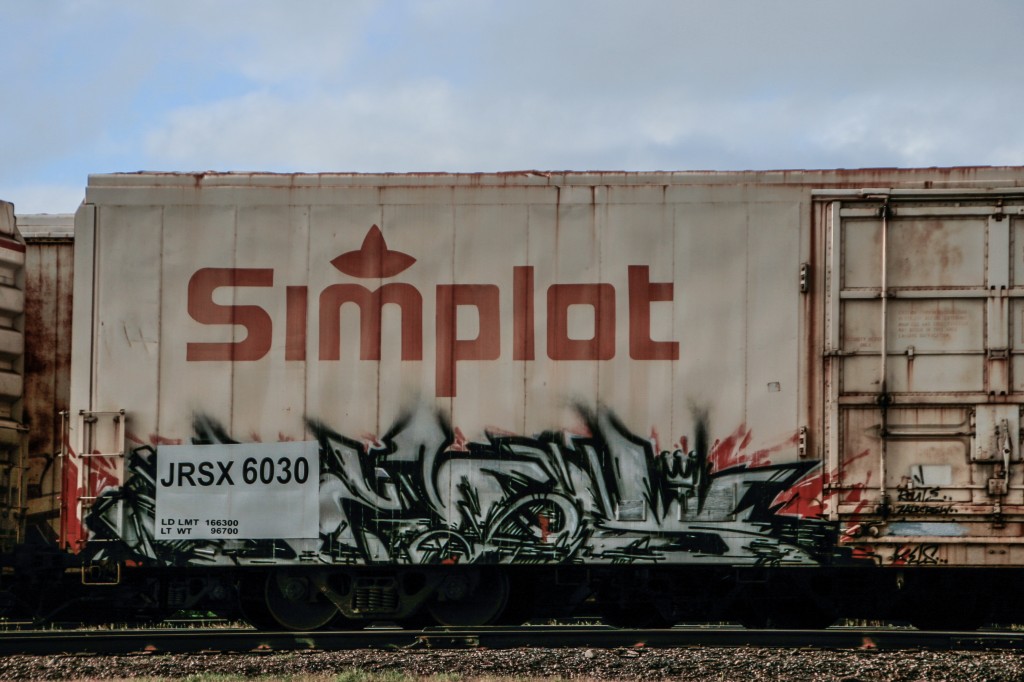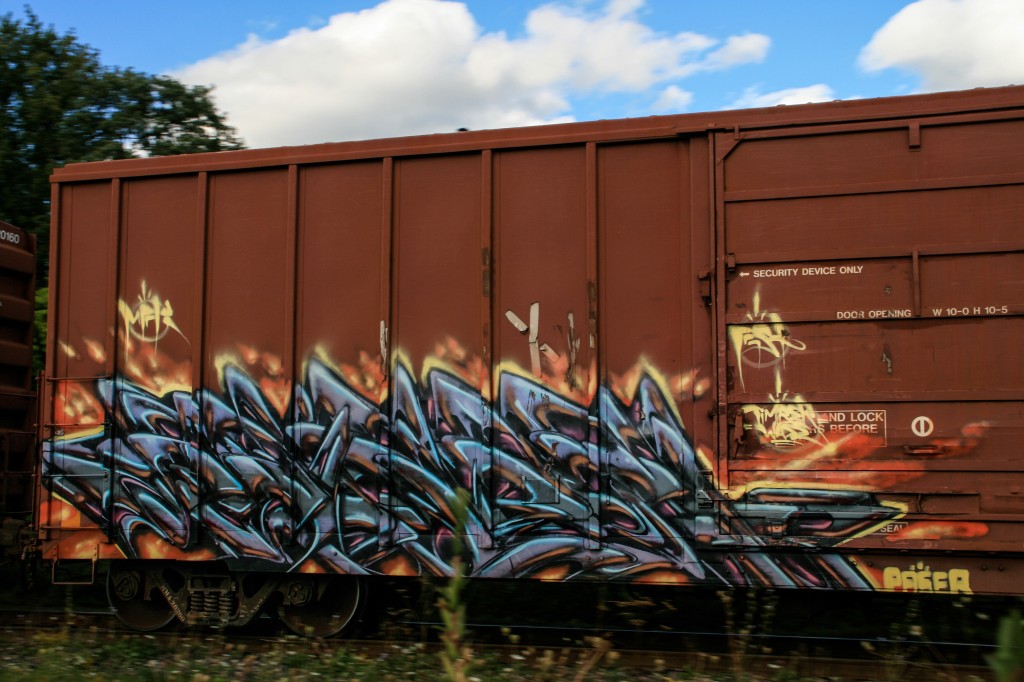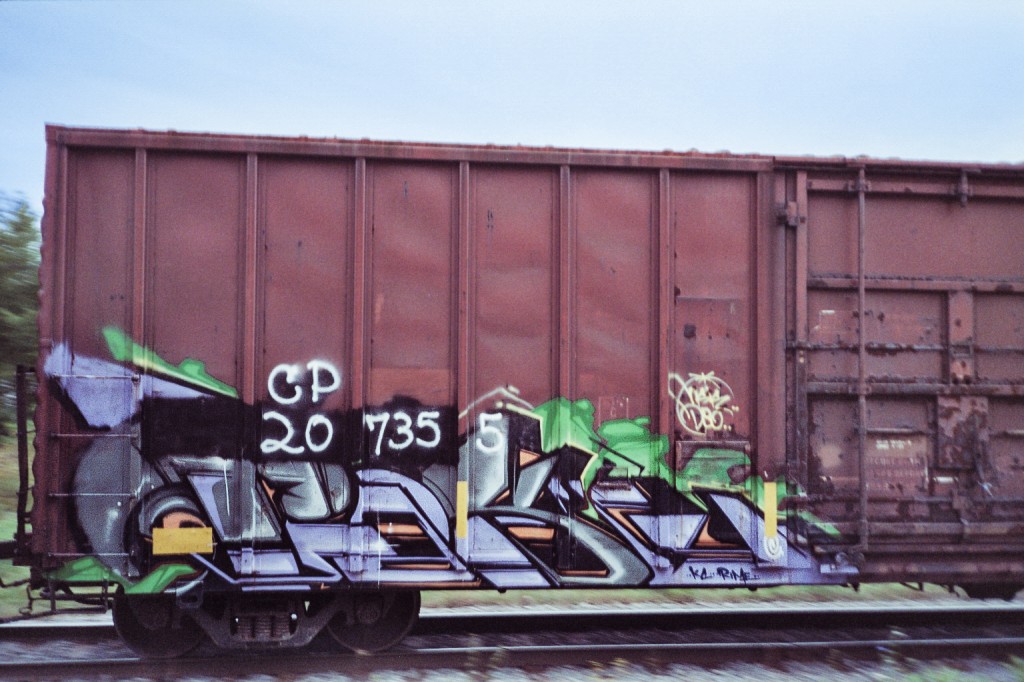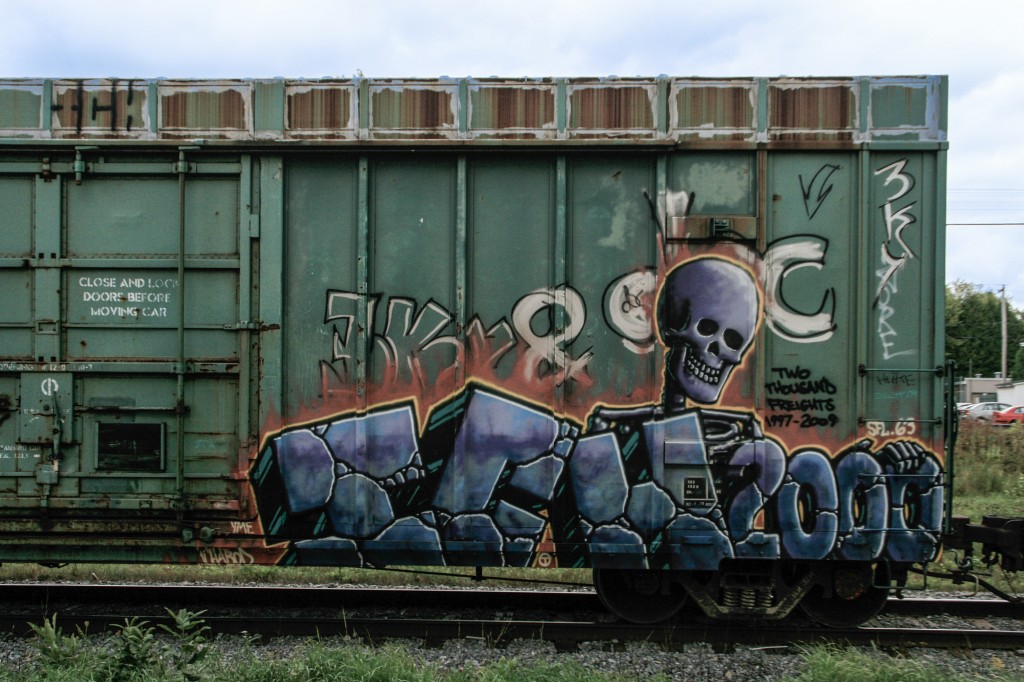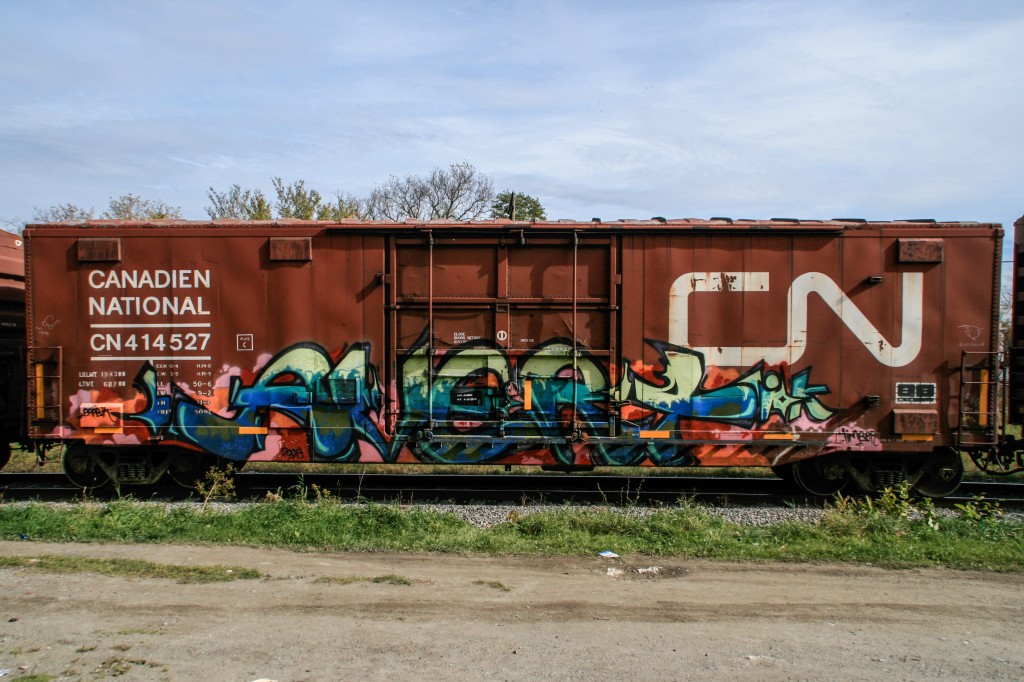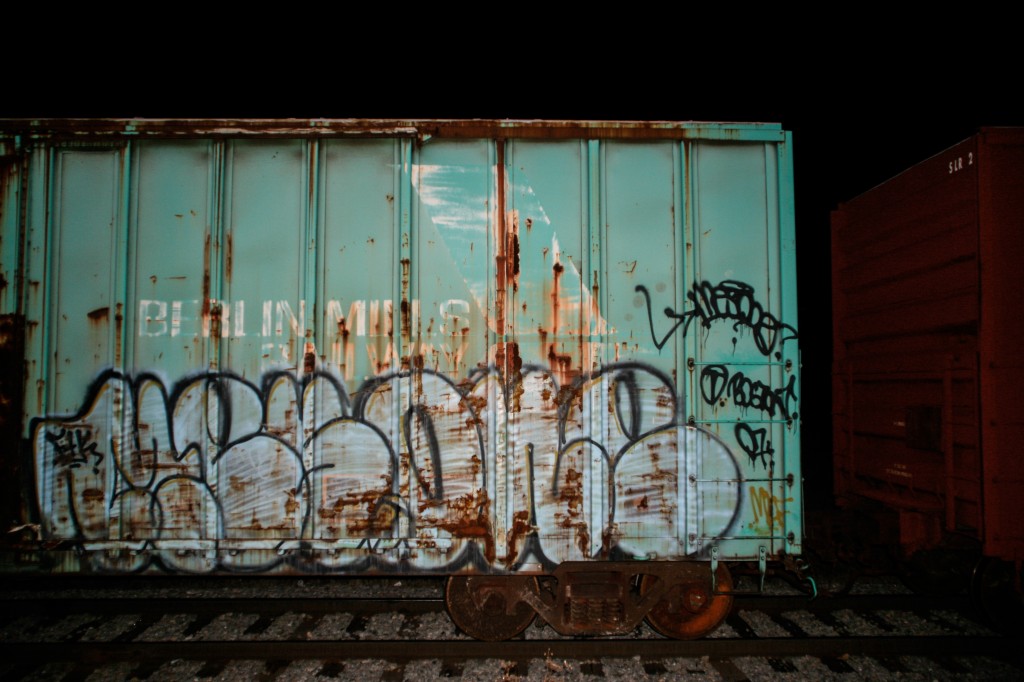Freight Train Graffiti
In March 2013 I came on board with PARK (Promoting Artists Redefining Kulture) as the Director of Art. One of my first initiatives was the Freight Train Graffiti Show at Winebar Kensington with the very talented photographer Pierre Quinn. I liked that Quinn’sphotographs were documenting an art form, which is extremely controversial and unconventional. I liked that the art form was transient but became less so in his photographs. My philosophy on art, as PARK‘s director of Art, is that I wanted to bring the art as an experience rather than a traditional 2D or 3D gallery type setting. There are plenty of opportunities for the people in Calgary to visit galleries, or to see and buy art, but there are less events in Calgary where someone is able to participate in the experience of the art. The past couple of years have provided Calgary a few prime opportunities to see some great non-gallery art. Nuit Blanche brought Calgary the Cloud, and then there was Wreck City,both of which took something conventional, turned it into something unique that the people of Calgary could experience in a non-conventional way. I think these types of experiences inspire others creativity and help change the way we see our space in the world.
Freight Train Graffiti – Pierre Quinn
Forwarded by PARK’s Art Curator Victoria Lessard
While artist Pierre Quinn jokes that his first foray into art was “mostly just to avoid the boring subjects” in school, it was the combination of a university
printmaking course, the gift of a camera, and a fascination with trains that set him on the path to a serious pursuit of photography.
During his time in Quebec studying political theory at university, Quinn lived near a set of railroad tracks. Fascinated with the ever-changing landscape of the tracks, Quinn began following the names of graffiti artists that appeared on the cars.
While the debate surrounding the artistic merit of this controversial medium does not interestQuinn, what drew him to begin photographing freight train graffiti was the quality of the work being produced. Quinn explains, “[…] when trains started being painted there was a sort of hierarchy, painting trains was a privilege. The idea was that only established writers were hitting them, keeping it the highest quality pieces. It’s not really like that anymore, but there are a lot of good people going out of their way to keep those traditions.” The masters of graffiti could be found on the boxcars rolling by Quinn’s home. Another draw for Quinn is the continuously moving setting of, as the photographer describes it, “the world’s largest rolling ‘art’ gallery.” An apt description, Quinn’sphotographs capture the transient nature of this unique “gallery”. No day is the same – there are no openings, no publicity campaigns, or gift shops. The pieces travel around the country, and once you see it, you never know if you’ll ever see it in person again.
Each graffiti piece is juxtaposed with the nature of the canvas on which it is sprayed – the historic cars of the CN rail line. Each car is beaten and weathered, presumably having crossed Canada thousands of times over before being created into an audacious piece of artistic street culture. The ephemeral quality of graffiti writing is contemplated in these works. How many people have seen these pieces roll before their eyes? Do the artists themselves ever see their pieces again? Quinn acts as a documentarian, recording these art works before they disappear, as well as a thoughtful portraitist. Quinn is creating a portrayal of these artists – each name, an evolving exploration of a self-representation of the person. Is the goal to simply place your name on as many trains as possible? Or is the idea to create an artwork within your own name, the artist’s signature written large? In one work, “ICH.” is sprayed on a rusty red boxcar. Inside the three letters, the graffiti artist has created a dusty landscape with a subtle transitioning of each colour into the other, echoing and reflecting the landscape the art piece will travel over, and over, until it fades away and remains only in Quinn’s photograph.
Photographer Pierre Quinn
Photographer Pierre Quinn’sFreight Train Graffiti prints of the photographs (below) will be available to pre-order this Saturday August 17 at PARKSALE 10am- 5pm, At Haultain Park – 225 13 Ave. S.W., Calgary, Alberta.
Print are on wood 8 X 12″ for $70 and will take be available for pick-up August 27, 2013
All profits from prints sold will be donated to The Boys and Girls Club of Calgaryfor their Safe House Basement Flood Relief. Quinn decided to donate the profits on his photographic prints because he considers himself a documentarian or others art and values the mission of The Calgary Boys and Girls Club to provide a safe, supportive place where children and youth can experience new opportunities, overcome barriers, build positive relationships and develop confidence and skills for life. – See more at: http://www.boysandgirlsclubsofcalgary.ca/about-us#sthash.iTFOdKqX.dpuf.
There will also be a donation jar on-site for The Boys and Girls Club of Calgary Basement Flood Relief and PARKSALE this Saturday August 17, 2013.
1. Honke
2. Ich Learn Owl Lack
3. Wase
4. Rio Oringe
5. Soviet
6. Oringe
7. Owl
8. Afex Rove
9. Seattle North Coast
10. Timber Paser
11. Spek
12. Ich
20. Servo
19. Engine Shot
18. Homes
17. Berlin Mills
16. Black and White Line
15. Oringe
14. Berlin
13. Afex
21. Kels Knox
22. Erabik Avert
23. Kels
24. Paser
25. Pose
26. Ich
27. Avert
28. Mes
All Photos Copyright Pierre Quinn 2013


